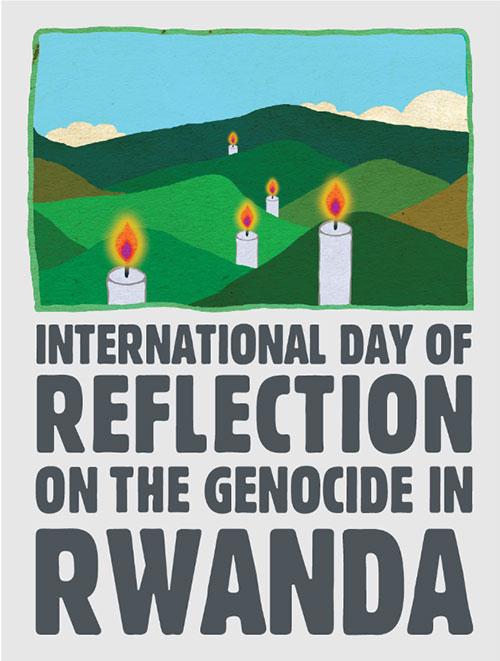International Day of Reflection on the 1994 Rwanda Genocide

Every year, since 2004, the 7th of April marks the International Day of Reflection on the 1994 Genocide. Between the 7th of April and the 15th of July 1994, about 700 000 members of the Tutsi ethnic group were killed by Hutu militias.
“We must never forget out collective failure to protect at least eight hundred thousand defenseless men, women and children who perished in Rwanda ten years ago.”, declared United Nations Secretary-General Kofi Annan to the Commission on Human Rights 19 years ago, “such crimes cannot be reversed. Such failures cannot be repaired.”
In his speech at the special meeting to observe the International Day of Reflection, the Secretary-General also urged the international community to launch an Action Plan to Prevent Genocide, aiming to prevent arm conflict, protect civilians, end impunity, recognize warning signs, act quickly when genocide is happening or about to happen.
However, a handful of genocides have happened since 2004, including in Bosnia and in Myanmar. What we see happening in Ukraine right now, since the full-scale invasion of Ukraine by Russia, also proves that member-States of the United Nations have actually failed their mission. Thousands of Ukrainian children are being deported to Russia for re-education purposes. Thousands of Ukrainians were killed, tortured, raped just because of loyalty to their home country. Victims are being targeted by Russians because of their membership to a national group, the Ukrainian one. After so many horrible massacres and genocides, the international community is morally and legally obligated to prevent another one. Let the International Day of Reflection on the 1994 Rwanda Genocide be a day to remember all Tutsi lives taken away for their simple existence, but also a day when we reflect on how the United Nations have failed at protecting civilians in other situations, and failed at recognizing early warning signs of genocide in Ukraine.
We invite you to read “A Sunday at the Pool in Kigali” (2000) and watch its adaptation into film (2006). “Shake Hands With The Devil” (2007), based on Roméo Dallaire’s autobiography, is also a powerful war drama to understand how the United Nations didn’t heed the major-general’s urgent pleas for further assistance to halt the massacre.
Author: Katerina Sviderska, Université de Montréal, Montreal Institute for Genocide and Human Rights Studies, Chair of Ukrainian Studies
Illustration: General Assembly of the United Nations

